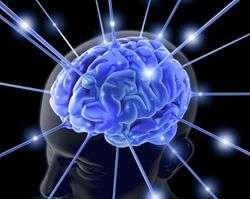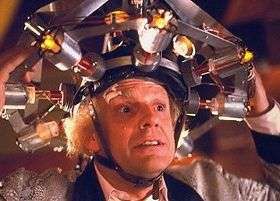I’m Playing Mind Games With You
by Dom
 Ever since I was young, I have been a gamer. Unfortunately, growing up in the brutal wastelands of the North (Derby), this carried a negative stigma; instead of being outdoors, torturing the weakest member of the friend group, I was often inside, ‘wasting my life’ on games (120 hours of Final Fantasy VIII… I’m not even ashamed). I was constantly told, by peers and parents alike, that games would ‘ruin my imagination’ and ‘make me dumb’. I disagreed then, and I disagree now.
Ever since I was young, I have been a gamer. Unfortunately, growing up in the brutal wastelands of the North (Derby), this carried a negative stigma; instead of being outdoors, torturing the weakest member of the friend group, I was often inside, ‘wasting my life’ on games (120 hours of Final Fantasy VIII… I’m not even ashamed). I was constantly told, by peers and parents alike, that games would ‘ruin my imagination’ and ‘make me dumb’. I disagreed then, and I disagree now.
Another one of my favourite pastimes was reading comics – typically geeky, I know – but there are some extremely powerful arguments in favour of the lovely little books stimulating intelligence. As we all know, there are two sides of the brain: the left and the right. To put it simply, the right is responsible for the creative, the artistic, the social. The left is the domain of the logical, the sensible, the academic. When we look at a piece of art, say, the right side of the brain kicks in and we interpret what we see in different ways as our synapses fire small electrical currents through our heads. When we read a book or attempt something mathematical, the left side our brain kicks into life, instead.
What’s all this got to do with gaming? More than you’d first think.
Alan Moore (graphic narrative writer extraordinaire) explains these dual processes in terms of Apollonian and Dionysian; Apollonian for the order and Dionysian for the chaotic. Apollonian for the left, Dionysian for the right. Order vs Chaos. Science vs Art. When we read a comic, both sides of our brain are engaged; the visual cues trigger thoughts and ideas in the left side of our heads whilst the text and verbal narrative stimulate the right side. The two overlap and both begin to work in unison.
 I would argue the very same happens to gamers when they boot up their console, except to a greater extent. The psychology of the gamer operates with vast gulfs; there are some games (take CoD, Gears, Halo for example) that require lightning fast reflexes and optimum timing to get the jump on your opponents. There are others (Devil May Cry/God of War/Bayonetta) that ask you to think on your feet and utilize pre-memorized button combinations to improvise and match the situation you find yourself in. Yet more games (from Final Fantasy/Disgaea to Pokemon) need you to make snapshot calculations in your head in order to gauge your chances at defeating some impossibly sized ‘Mega-Ultra-Final-Boss’.
I would argue the very same happens to gamers when they boot up their console, except to a greater extent. The psychology of the gamer operates with vast gulfs; there are some games (take CoD, Gears, Halo for example) that require lightning fast reflexes and optimum timing to get the jump on your opponents. There are others (Devil May Cry/God of War/Bayonetta) that ask you to think on your feet and utilize pre-memorized button combinations to improvise and match the situation you find yourself in. Yet more games (from Final Fantasy/Disgaea to Pokemon) need you to make snapshot calculations in your head in order to gauge your chances at defeating some impossibly sized ‘Mega-Ultra-Final-Boss’.
So, whereas comics have you engaging in the process of decoding text whilst relating the narrative to images, games stimulate a wider variety of mental processes (as well as a few physical ones). It’s like a computer running multiple programs at once – a comic is an internet browser playing a powerful Flash game, and a videogame is the same computer running Crysis 2 whilst downloading the whole Beatles back-catalogue and fighting off some irritating and malevolent virus.
Even fighting games can be used as a good example to back up this argument. You sit down on your couch and slide Tekken 6 into your disc tray. When the menu pops up, you select the character you prefer and jump into a fight. Here’s where a lot of the brain’s subconscious processes kick in. For me, fighting games are rather therapeutic: you can sit back and just use the same 10 or 12 button combinations (read: moves) no matter what the computer throws at you; you’ve got quick attacks for countering, slow attacks for when they’re vulnerable and throws when they’re too close for comfort. Even in this relatively stress-free environment, you’re still doing up to four things at once; visually glancing at the health bar every few seconds and risk-assessing for various strategies, kinetically sending messages to your fingers to input different combinations into the pad, mentally gauging the moves of the opponent to take advantage of their weaknesses, and, lastly, subconsciously submitting information to your brain to build on the natural way you work in a future gaming environment.
So, although it may seem that you’re just sitting there, relaxing and taking out all your violent fantasies on a friendly Panda, your brain is actually more actively engaged than it is when you read a novel. Games that make this sort of thing their prime objective (read: Dr Kawashima) are naturally more attuned to doing this, but every game has some sort of effect on the brain as a whole, both stimulating and entertaining.
And who ever said you never learnt anything from playing games, eh?
Last five articles by Dom
- Defining Games, Part I: ‘Culture’
- Best of 2012 - 10 Games and Their Classic 8-Point Story Arcs
- 10 Games and Their Classic 8-Point Story Arcs
- Tekken Tag Tournament 2 - Review
- Tom Clancy’s Ghost Recon: Future Soldier - MP, Campaign, and Film Preview




















Interesting theory you’ve got there that’s hard hard to disagree with. I always wondered why I can read a comic book cover to cover but never a book.
I won’t say anything Lee, you’ve made that target far too big and easy. Heh.
Interesting article Dom. Not sure how much of it is scientifically viable, but I similarly couldn’t disprove it, so I’m content to lay here nodding sagely and stroking my beard. Biology has never been my strong suite. Got to say though, comics and video games never did me any harm, and I used to hear all that bollocks about how they’d kill my imagination and capacity for intelligent thought. Usually from people who spend all day watching TV and never had any imagination to start with.
Good read Dom.
That said studying the animation in Way of the Exploding Fist isn’t going to help you if you get jumped by punks. Although learning kung fu never made me any good at Tekken.
Confused.
That’s a fucking awesome Pro-Game argument! A two finger salute to all those snobby, narrow-minded, hypocritical, soap-watching, non-gamers who love to put down such an engaging hobby.
Bloody well done Dom! Viva la resistance!
Actually a lot to be said for gaming improving the mind I think. As far as logical thinking, puzzle solving, lateral thinking, trial and error, reaction times, and honing patience, there is certainly a lot to be said for what games can teach. I think that many games, not just the brain training types, have the capacity to develop skills in young and old.
A fantastic read Dom, and it’s something I can use to help champion games to those who claim it’s not doing anything for anyone. You’re not half bad at this writing lark, you know?
I always cast an odd glance to people who say:
“no really up too much, just switched off from everything tonight, just going to play something mind numbing and relaxed”
I’ve never been more engaged then when I’m playing a game. It doesn’t matter how comfortable I am with a game or how simply the thoughts and responses flow, I know that I’m switched on to so many things.
In a shooter like Halo, even though I don’t ever play to win my brain is constantly questioning me; where was the guy who just killed me heading, when did you last see anyone with the rocket launcher, how much health do I have, who just died? Weren’t they just ahead of me?
It’s a great article Dom even if a scientist were to stumble on to the article and frown slightly it’s a great use of logic and an awesome counterargument
I love the premise behind this, but I think it could have been a couple of thousand words longer to explore in a more in-depth manner as I think this has perhaps only skimmed the surface. I agree though, but I think that any pastime involving an element of dextrous activity and reflexes, along with forward thinking, can improve the mind’s capability to process information.
Take drumming… all four limbs working entirely separately from each other while you not only listen to what you’re playing yourself but those around you… taking in every little nuance and pre-empting available space to throw in a flourish here and there that will not only embelish the overall sound, but still has to keep perfect time in order for everyone else to work in unison. After a while, the limbs become detached from the thinking part of the brain and rely solely on muscle memory where your mind calculates what needs to be done and the limbs instinctively follow rather than you having to send that conscious command to them.
I love the human brain. I love what we’re capable of, whether it be invention or destruction, and I love that gaming affords us that luxury to combine quick thinking with art appreciation, limb control and excitement/caution at the same time. We’re pretty awesome creatures.